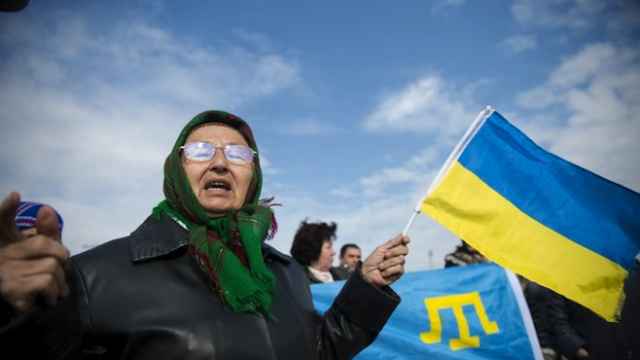A former employee of Sberbank’s London office who won millions in damages in a sexual harassment lawsuit earlier this week would not have fared so well had she sought justice in Russia, rights activists and labor lawyers told The Moscow Times on Thursday.
Svetlana Lokhova — whom male colleagues at the Sberbank's equity sales desk in London had nicknamed "Crazy Miss Cokehead" and "Miss Bonkers" — was awarded £3.2 million ($4.7 million) by the Central London Employment Tribunal, British media reported earlier this week.
The tribunal ruled that she had been driven to a breakdown by the "disgraceful" harassment of male colleagues, one of whom suggested that she seek the sexual healing of Nigerian tribesmen, The Telegraph reported in 2013.
Russian feminist groups applauded the tribunal's decision, deploring the absence of high-profile sexual harassment cases in Russia.
"Sexual harassment is unfortunately perceived as a norm in Russian society," said Natalya Bitten, the head of For Feminism, a women's rights organization advocating for gender equality. "It is perceived as a compliment to women. Sexists will say that without sexual harassment, Russia would die out because there would be no sex and no children."
In a bid to thwart commonplace sexism, For Feminism awarded last month its "Sexist of the Year" award to publicist Yegor Kholmogorov, who had called in a Facebook post for the beating of women who utter the word "sexism."
Russian women have little legal protection when it comes to sexual harassment.
Although Russia has ratified a United Nations convention that recognizes sexual harassment as a form of discrimination, the country's legislation does not define sexual harassment, nor does it include clauses about the phenomenon. The Criminal Code's section on crimes against sexual freedom and inviolability contains articles on rape and on violent and illicit sexual relations, but none about sexual harassment.
The only Criminal Code article viewed as touching upon sexual harassment in the workplace pertains to "compulsion to perform sexual actions," which does not incorporate sexist taunts or other forms of sexual misconduct, such as those Lokhova endured. As of April 2013, no sexual harassment cases had been won under this article, according to Russia's Interregional Trade Union Workers' Association.
Clauses about sexual harassment are also absent from Russia's Labor Code.
"To win a case, the first thing that would need to be done would be to define what sexual harassment means in the context of Russian law," lawyer Marina Zakharina told The Moscow Times. "In the absence of a definition, it is extremely difficult to make any sexual harassment cases because the notion does not exist in the legal sphere."
Zakharina added that it would have been "impossible" for Lokhova to seek damages if she had worked in a Sberbank office in Russia.
State Duma Deputy Oleg Nilov proposed last March that Russia adopt its first anti-sexual harassment law. Nilov — whose bill of sexual harassment was restricted to women being harassed by men — defined sexual harassment as undesired sexual contact or attempted contact, soliciting sexual favors, and other verbal or physical conduct of an inappropriate sexual nature.
The lawmaker, who wrote on his blog that his initiative would protect the "more beautiful but weaker sex," proposed that non-Russian offenders should be deported, sparking fears that if adopted, the bill could unfairly target Russia's migrant workers.
The Duma rejected Nilov's bill in September.
According to Zakharina, in the absence of a specific legal provision on sexual harassment, Russian women who are hounded in the workplace can try to invoke related provisions — such as the Criminal Code's articles on attempted rape — to make their case.
"But this tactic most often proves to be ineffective," she said.
Contact the author at [email protected]
A Message from The Moscow Times:
Dear readers,
We are facing unprecedented challenges. Russia's Prosecutor General's Office has designated The Moscow Times as an "undesirable" organization, criminalizing our work and putting our staff at risk of prosecution. This follows our earlier unjust labeling as a "foreign agent."
These actions are direct attempts to silence independent journalism in Russia. The authorities claim our work "discredits the decisions of the Russian leadership." We see things differently: we strive to provide accurate, unbiased reporting on Russia.
We, the journalists of The Moscow Times, refuse to be silenced. But to continue our work, we need your help.
Your support, no matter how small, makes a world of difference. If you can, please support us monthly starting from just $2. It's quick to set up, and every contribution makes a significant impact.
By supporting The Moscow Times, you're defending open, independent journalism in the face of repression. Thank you for standing with us.
Remind me later.






